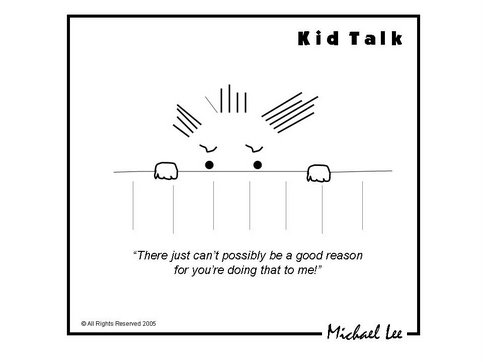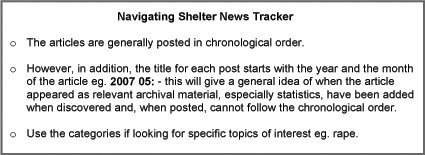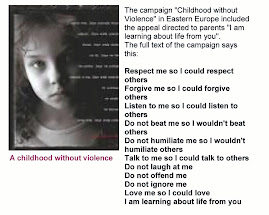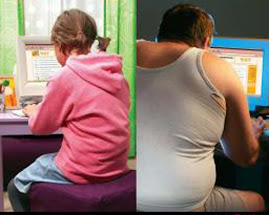

Wednesday, 11 April 2007
2006 08: Making parents liable
The Star online. Lifestyle. Focus. Tuesday August 1, 2006
ARTICLES OF LAW
By BHAG SINGH
IT would appear that vandalism, gambling, smoking, improper public conduct and truancy among youths are increasingly becoming problems that need to be addressed. This has given rise to suggestions that parents and owners and operators of the premises involved be responsible.
It has been reported that the authorities are considering broader Social Laws whose effect will be that parents could end up being held accountable for offences committed by juveniles.
A reader has written to inquire whether that would be legally correct. Shouldn’t a person be responsible for his own acts?
This concern of the reader is not entirely without basis. The legal issues that are involved need to be carefully looked at to prevent imposition of punishment by proxy.
Such a responsibility or for that matter accountability placed on a person for the wrongful acts of another is referred to as “vicarious liability” and Osborn’s Concise Law Dictionary gives its meaning as: “Legal liability imposed on one person for torts or crimes committed by another (usually an employee but sometimes an independent contractor or agent), although the person made vicariously liable is not personally at fault.”
The phrase is derived from the early medieval idea of holding a master responsible for all his servant’s wrongs which gave way, with the disintegration of the feudal system, to the principle that his liability be limited to the particular acts which he had ordered or to which he had afterwards assented.
Thus, it will be seen that vicarious liability can come about both in the area and arena of Civil Law and Criminal Law. Civil Law could cover subjects which are the likes of contract and torts. Torts in this regards is a group of subjects comprising negligence, trespass, defamation and others.
An employer is vicariously liable for torts committed by his employees when he has authorised or ratified them or when the tort was committed in the course of the employee’s work. Thus, negligent driving by someone employed as a driver is a tort committed in the course of his employment, but if the driver were to assault a passing pedestrian for private revenge, the assault would not be connected with his job and his employer would not be liable.
Otherwise in the area of business and commercial transactions a member of a partnership is liable for all obligations and related wrongdoings of the other partners or partners so long as such actions are in the course of the partnership business.
Where the relationship between two persons is that of principal and agent the principal is liable for all commitments created by an agent. It is an extension of this principle which makes a husband liable for any contracts entered into by his wife for what are termed “necessaries”.
In the case of offences there can also be vicarious liability. Vicarious criminal liability may be imposed on an employer for offences committed by an employee. Thus, it has been held that an employer is guilty of selling improper food under the Food and Drugs legislation when his employees do the physical act of selling.
Likewise, an employer may be guilty of supplying goods under a false trade description when it is his employee who actually delivers them. The registered owner of a vehicle, for example, may be expressly made liable by statute for fixed penalty and excess parking charges, even if it was not his fault.
In the arena of publishing the editor of a magazine would be liable for whatever that is published. What if it is not his fault at all?
In the case of sedition there are qualifications to such liability so that even though a person has overall responsibility of the activity he could avoid liability if what has happened is without his knowledge and he has taken due care against such occurrences.
Thus, a person may be able to avoid liability if the publication was printed, published, sold, offered for sale, distributed, reproduced or imported without his authority, consent and knowledge and without any caution on his part or he did not know that the publication had a seditious tendency.
Coming back to the subject of such law being considered, it is hoped that it will not be on an absolute basis. It will be desirable that a “child”, for the purpose of such liability, is defined in an appropriate manner considering the nature of the offence and the consequences. There will also need to excuse the parents if they have done whatever that is expected of them.
It will also be necessary to consider who a “juvenile” is. The Juvenile Courts Acts 1947 defines a juvenile as a person who has attained the age of criminal responsibility prescribed by Section 82 of the Penal Code or is under the age of 18.
The Child Act 2001 defines a child as meaning a person under the age of 18 years and in relation to criminal proceedings, means a person who has attained the age of criminal responsibility as prescribed in section 82 of the Penal Code.
Finally, it must be remembered that the fact that the parents could become liable would not mean the juvenile or child would go free. The actual person who commits the offence will always continue to be personally liable.
The objective of such legislation must be in the interests of the community to justify adding extra obligation on the parents.
ARTICLES OF LAW
By BHAG SINGH
IT would appear that vandalism, gambling, smoking, improper public conduct and truancy among youths are increasingly becoming problems that need to be addressed. This has given rise to suggestions that parents and owners and operators of the premises involved be responsible.
It has been reported that the authorities are considering broader Social Laws whose effect will be that parents could end up being held accountable for offences committed by juveniles.
A reader has written to inquire whether that would be legally correct. Shouldn’t a person be responsible for his own acts?
This concern of the reader is not entirely without basis. The legal issues that are involved need to be carefully looked at to prevent imposition of punishment by proxy.
Such a responsibility or for that matter accountability placed on a person for the wrongful acts of another is referred to as “vicarious liability” and Osborn’s Concise Law Dictionary gives its meaning as: “Legal liability imposed on one person for torts or crimes committed by another (usually an employee but sometimes an independent contractor or agent), although the person made vicariously liable is not personally at fault.”
The phrase is derived from the early medieval idea of holding a master responsible for all his servant’s wrongs which gave way, with the disintegration of the feudal system, to the principle that his liability be limited to the particular acts which he had ordered or to which he had afterwards assented.
Thus, it will be seen that vicarious liability can come about both in the area and arena of Civil Law and Criminal Law. Civil Law could cover subjects which are the likes of contract and torts. Torts in this regards is a group of subjects comprising negligence, trespass, defamation and others.
An employer is vicariously liable for torts committed by his employees when he has authorised or ratified them or when the tort was committed in the course of the employee’s work. Thus, negligent driving by someone employed as a driver is a tort committed in the course of his employment, but if the driver were to assault a passing pedestrian for private revenge, the assault would not be connected with his job and his employer would not be liable.
Otherwise in the area of business and commercial transactions a member of a partnership is liable for all obligations and related wrongdoings of the other partners or partners so long as such actions are in the course of the partnership business.
Where the relationship between two persons is that of principal and agent the principal is liable for all commitments created by an agent. It is an extension of this principle which makes a husband liable for any contracts entered into by his wife for what are termed “necessaries”.
In the case of offences there can also be vicarious liability. Vicarious criminal liability may be imposed on an employer for offences committed by an employee. Thus, it has been held that an employer is guilty of selling improper food under the Food and Drugs legislation when his employees do the physical act of selling.
Likewise, an employer may be guilty of supplying goods under a false trade description when it is his employee who actually delivers them. The registered owner of a vehicle, for example, may be expressly made liable by statute for fixed penalty and excess parking charges, even if it was not his fault.
In the arena of publishing the editor of a magazine would be liable for whatever that is published. What if it is not his fault at all?
In the case of sedition there are qualifications to such liability so that even though a person has overall responsibility of the activity he could avoid liability if what has happened is without his knowledge and he has taken due care against such occurrences.
Thus, a person may be able to avoid liability if the publication was printed, published, sold, offered for sale, distributed, reproduced or imported without his authority, consent and knowledge and without any caution on his part or he did not know that the publication had a seditious tendency.
Coming back to the subject of such law being considered, it is hoped that it will not be on an absolute basis. It will be desirable that a “child”, for the purpose of such liability, is defined in an appropriate manner considering the nature of the offence and the consequences. There will also need to excuse the parents if they have done whatever that is expected of them.
It will also be necessary to consider who a “juvenile” is. The Juvenile Courts Acts 1947 defines a juvenile as a person who has attained the age of criminal responsibility prescribed by Section 82 of the Penal Code or is under the age of 18.
The Child Act 2001 defines a child as meaning a person under the age of 18 years and in relation to criminal proceedings, means a person who has attained the age of criminal responsibility as prescribed in section 82 of the Penal Code.
Finally, it must be remembered that the fact that the parents could become liable would not mean the juvenile or child would go free. The actual person who commits the offence will always continue to be personally liable.
The objective of such legislation must be in the interests of the community to justify adding extra obligation on the parents.
Subscribe to:
Post Comments (Atom)



No comments:
Post a Comment